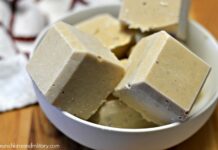These 5 fragrant mosquito repellent plants are perfect to plant around your ponds, fountains or any other spaces in your yard or garden.
Mosquitoes aren’t just a nuisance when you go outdoors, they’re a legitimate cause for health concerns. But these fragrant mosquito repellent plants will be helpful for you!
Fragrant Mosquito Repellent Plants
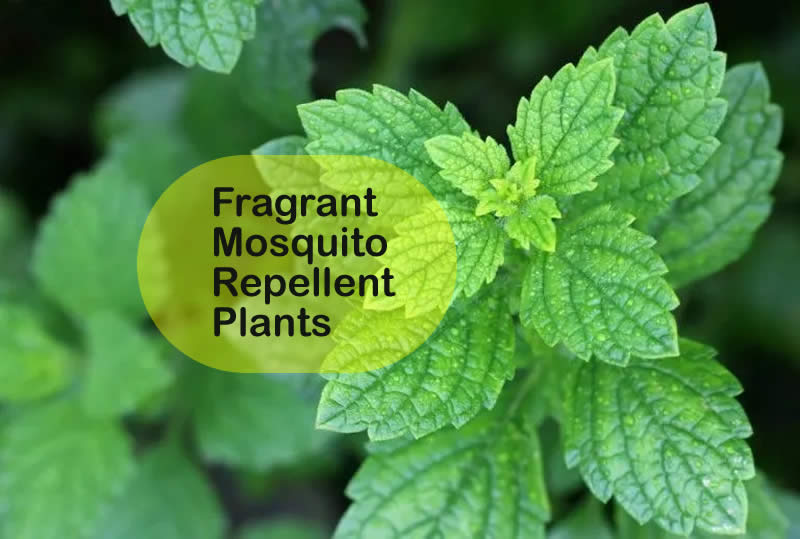
They search for people or animals to dine on, sucking out their blood and bringing all sorts of diseases and viruses like Zika, malaria and west Nile virus, which you’d probably never wish on your worst enemy or pets.
Using an outdoor planter you can plant any one of these fragrant mosquito repellent plants on your garden to help ward of mosquitoes and keep your patio beautiful!
Mosquito Repellent Plant: Rosemary
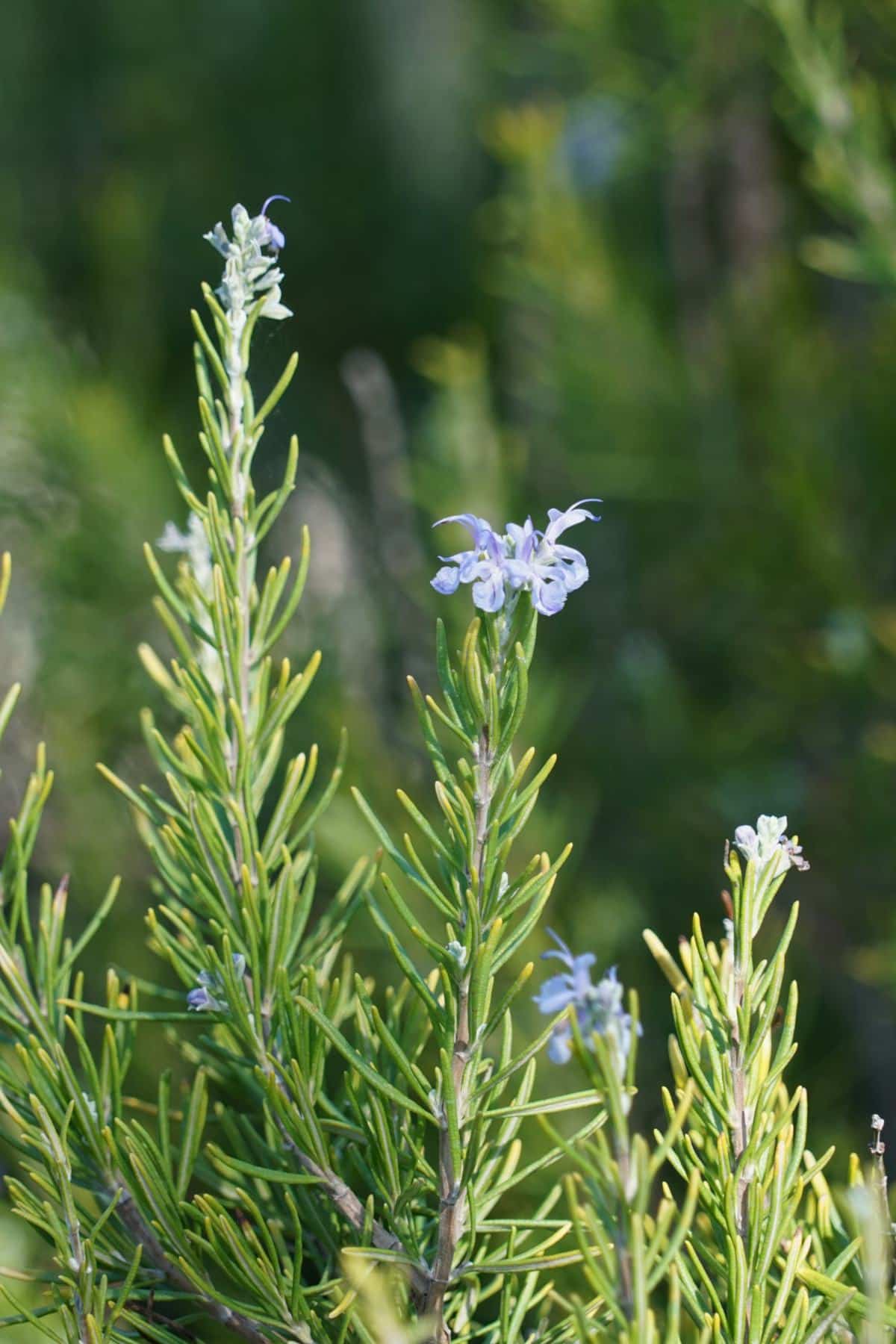
Rosemary is one of the great fragrant mosquito repellent plants, when you want to gather around a fire without battling mosquitoes. Just toss some in the fire, mosquitoes don’t like the smell.
Known for its flavor, it’s also used for many culinary purposes. It flowers, has flavor and repels mosquitoes: what’s not to love?
It’s suitable for growth in a garden bed or in a container if you wish to bring it indoors, and it enjoys full sun. For repellent purposes, the live plant, cuttings from the plant and rosemary essential oil are all effective at repelling mosquitoes.
Homemade Rosemary Mosquito Repellent Recipe
An easy repellent spray is made by including 1 cup of dried rosemary in a liter of water, boiling it in a saucepan for 20 to 30 minutes. Pour a quart of cold water into another container (which holds at least 1/2 gallon), then put the rosemary water in the container.
Get the detailed instructions here.
Mosquito Repellent Plant: Peppermint
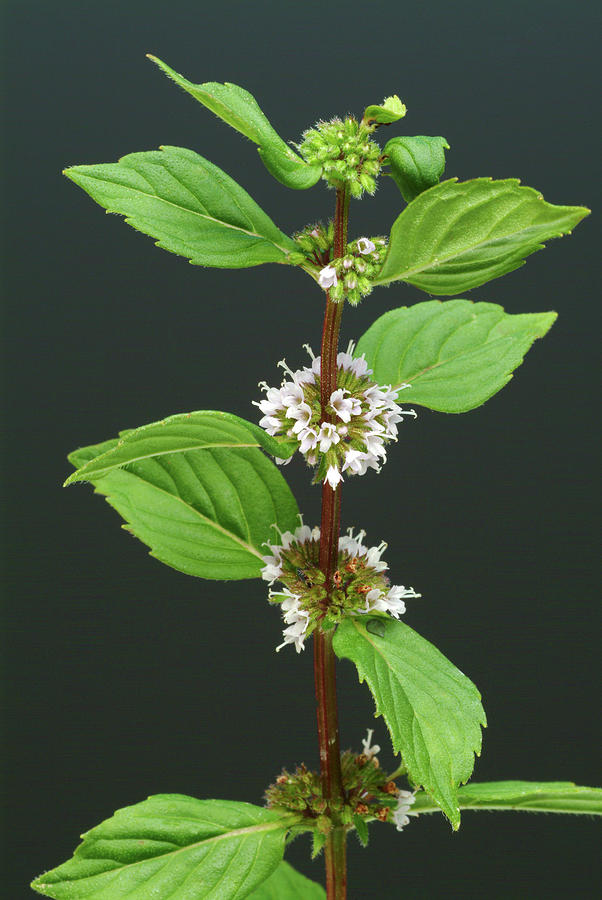
Peppermint has a minty clean scent significantly better than that awful chemical smell, it can serve as a natural insecticide to repel mosquitoes.
Not only is the clean mint scent of peppermint significantly better than that awful chemical smell, it can act as a natural insecticide to repel mosquitoes.
In fact, research published in the Malaria Journal revealed why it is so effective. Experts have found that it provides repellent action when applied to exposed body parts, while also exhibiting larvicidal and mosquito repellent action.
Mosquito larvae were killed 24 hours after exposure to a solution of peppermint oil and water. When enjoying your garden or when mosquito problems become severe, squeeze some of the plant’s leaves to release the fragrance and oils.
How do you use peppermint as a mosquito repellent?
Mix water and peppermint oil in a spray bottle. Shake the bottle before use and spray the solution around entry points such as window sills and door frames, or places where insects can hide. The strong smell acts as a repellent.
10 Ways to Make Your Backyard More Inviting
Mosquito Repellent Plant: Lavender
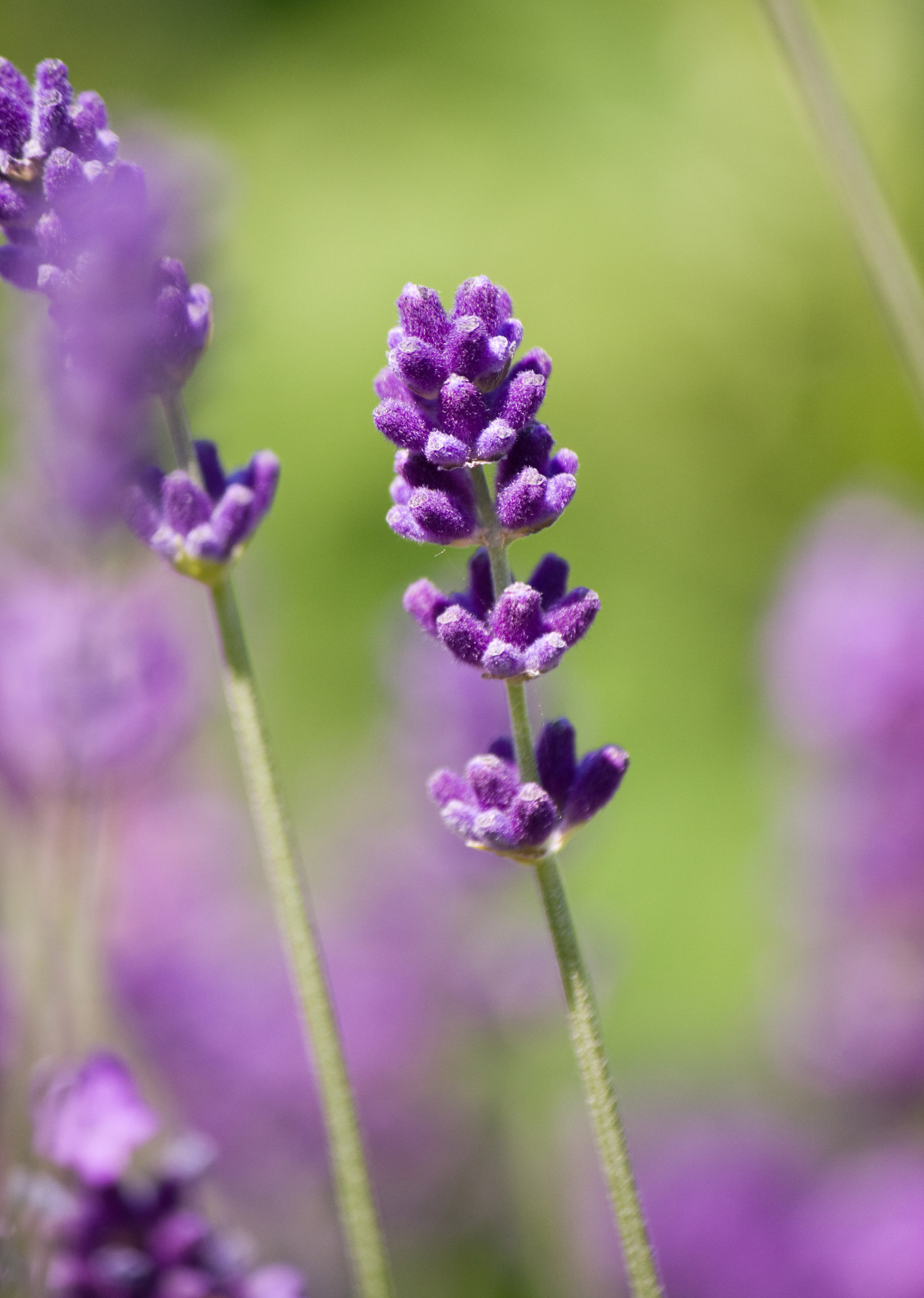
Lavender not only smells good and relaxing, but it can keep those tiny pests from ruining your outdoor dinner party.
Most of us love the smell of lavender, but few realize that it doesn’t just deliver that fabulous scent. It helps promote a calming, soothing feeling, but it can keep those little invaders from ruining your alfresco dining.
The pleasant aroma of lavender is offensive to mosquitoes and is best exploited by planting in the garden or in pots located near doors, windows and entertainment areas.
How do you make lavender mosquito repellent?
To make your lavender insect repellent, mix lavender essential oil with distilled water or apple cider vinegar. For example, mix 30 to 40 drops of lavender oil with 1.5 ounces of distilled water.
Then, pour the mixture into a saucer and place it in an area where you’re seeing lots of insects.
For better explanation, you can visit wikiHow
Mosquito Repellent Plant: Lemon Balm
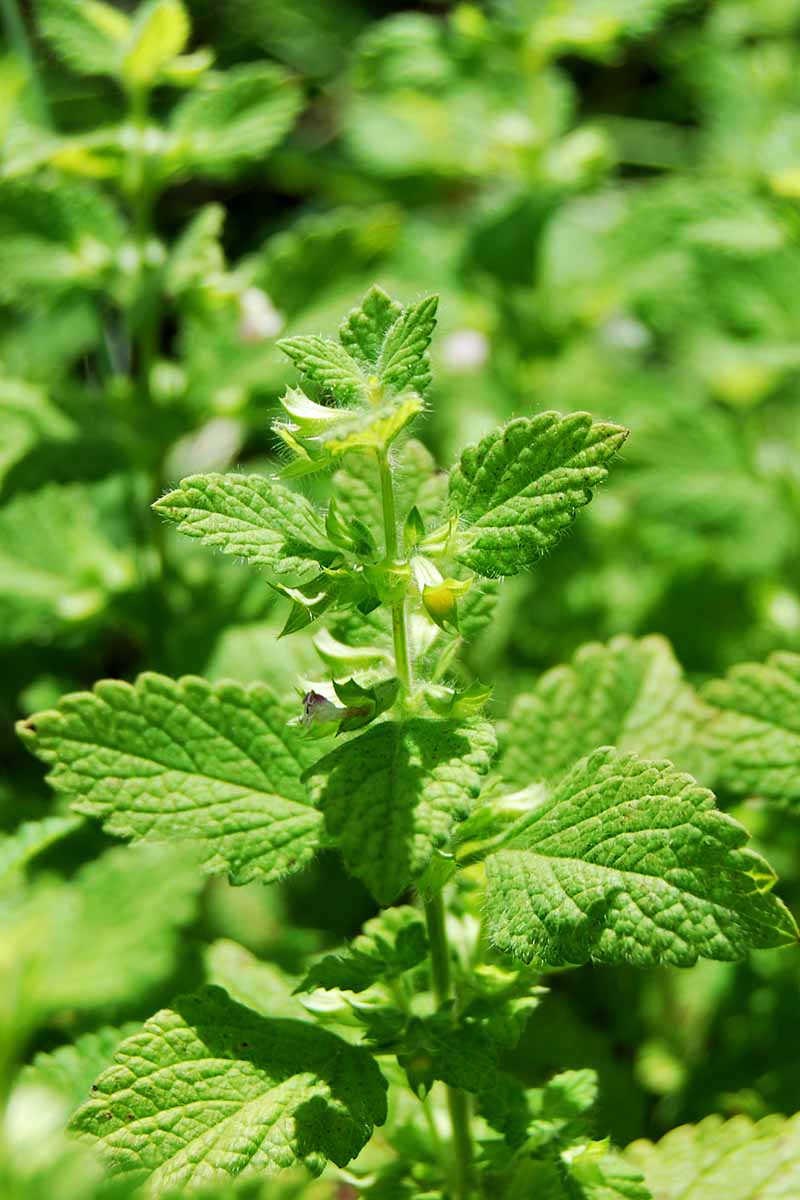
Lemon Balm is a plant in the mint family that is a great fragrant mosquito repellent plant. The green leaves have a lemon mint smell to them. Crush a handful of the leaves in your hand and rub them onto your exposed skin.
The green leaves of lemon balm have a lemon scent with a hint of mint, which should come as no surprise as it is part of the mint family.
Not only does it offer many healing properties, but it is known to repel mosquitoes while attracting important pollinators such as butterflies and bees.
For a quick mosquito repellent, all you have to do is crush a handful of leaves in your hand and rub them into exposed skin.
How to create Lemon Balm Mosquito Repellent
Take a handful of fresh lemon balm leaves and a generous pinch each of basil, catnip and mint from your garden.
Now Follow the steps:
1. Fill a glass jar full of herb leaves, then pour witch hazel extract over it, almost to the top.
2. You can usually find witch hazel at your local pharmacy or in the pharmacy section of a grocery store.
3. Close the jar and place it in a cool, dark cupboard for a week or two. Filter and store away from light and fire.
4. When you’re ready to mix a new set of vaporizers, fill a glass vaporizer or nebulizer halfway with the witch hazel infusion.
Learn a recipe for Lemon Balm Bug Spray.
Mosquito Repellent Plant: Marigolds
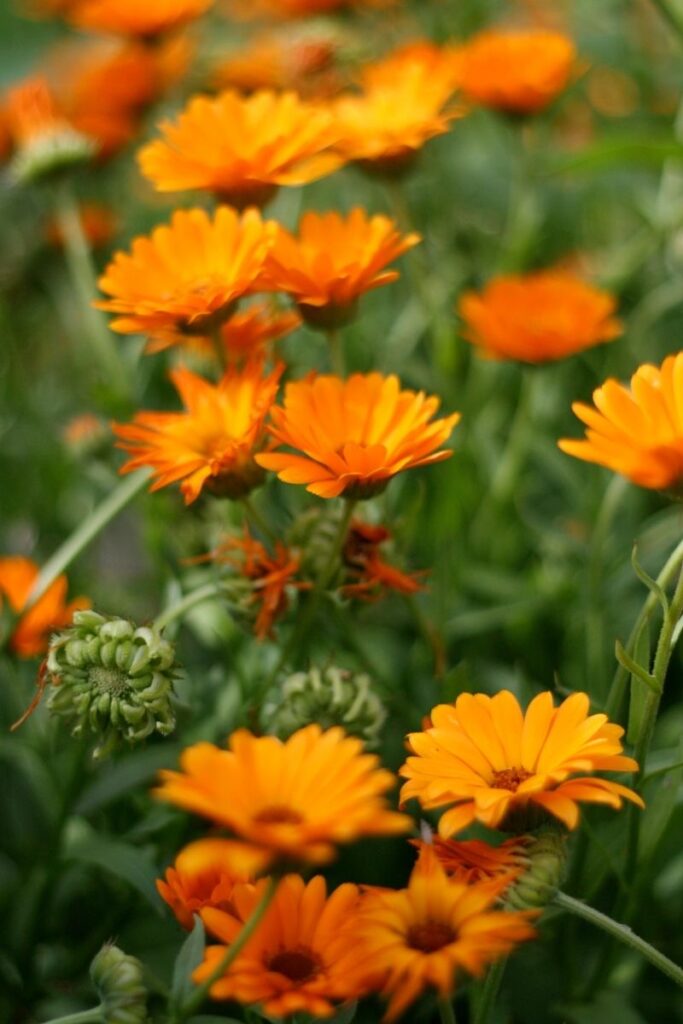
Marigolds is one of the best mosquito repellent plants. Marigolds contain pyrethrum, a compound used in many insect repellents.
A study on the “shielded cage method” examined the repellent action of essential oils derived from calendula and myrtle compared to DEET and found that showed that the protection time of essential oils of calendula and myrtle at 50% were 2.15 and 4.36 hours respectively compared to 6.23 hours for DEET 25%.
Place potted marigolds near entrances to your home, as well as common mosquito entry points such as open windows to deter insects from entering the barrier.
How to make marigold Mosquito Repellent spray
1. Put water and marigolds in a blender and pulse for just a few seconds. The mixture should still be chunky.
2. Place in a mason jar and let it sit in a cool dark place for 2 days. Shake occasionally.
3. After the 2 days have passed, strain the mixture out through a cheesecloth squeezing the cheesecloth to get the last of the liquid out.
4. Pour into a plant sprayer and dilute with about 6 cups of water.
5. You can also add 1/4 tsp of Castile soap to help the mixture to stick to your plants.
Store the marigold spray in the refrigerator. It should keep for at least 2 weeks.
These 5 fragrant mosquito repellent plants are great for repelling mosquitoes, but for greater effectiveness, combine them with these other natural ways to keep mosquitoes away.


